Publications
Browse our collection of featured publications showcasing groundbreaking research
from DBEI experts in biostatistics, epidemiology, and informatics.
Browse our collection of featured publications showcasing groundbreaking research
from DBEI experts in biostatistics, epidemiology, and informatics.

Congratulations to Dr. Yong Chen on his RECOVER-EHR study being named a 2026 Top 10 Clinical Research Achievement.
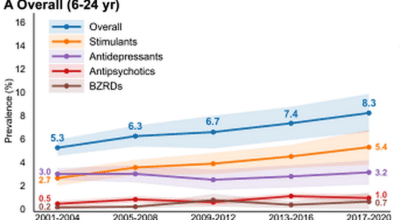
A DBEI-led study found rising psychotropic medication use among U.S. youth, along with growing safety concerns such as polypharmacy and potential drug–drug interactions.

Jeffrey S. Morris, PhD, analyzes the U.S. vaccine safety monitoring system and suggests improvements in a new APPC white paper.

In a recent interview, Dr. Sean Hennessy highlights how scientific evidence and advocacy can drive FDA label changes that expand access to safe, effective medications.
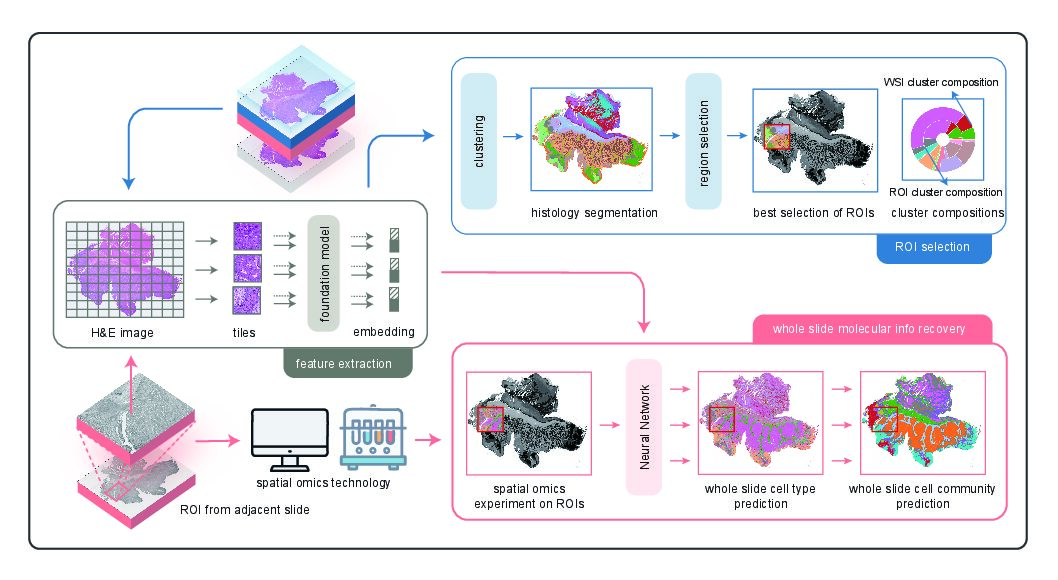
A new paper led by DBEI faculty member Mingyao Li, PhD, introduces smart spatial omics (S2-omics), an automated workflow that improves the rigor and reproducibility of spatial omics experiments.

A new study by Dr. Ricardo Castillo identifies stark rabies inequities in Arequipa driven by neighborhood socioeconomic status.
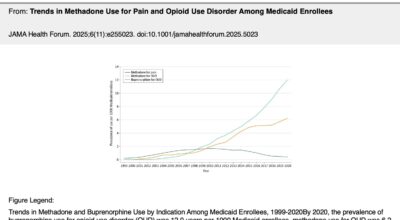
Penn researchers have received NIH/NIBIB funding to develop robust and interpretable multi-modal AI models that integrate genomics, imaging, and electronic health data to advance cancer and Alzheimer’s disease research.
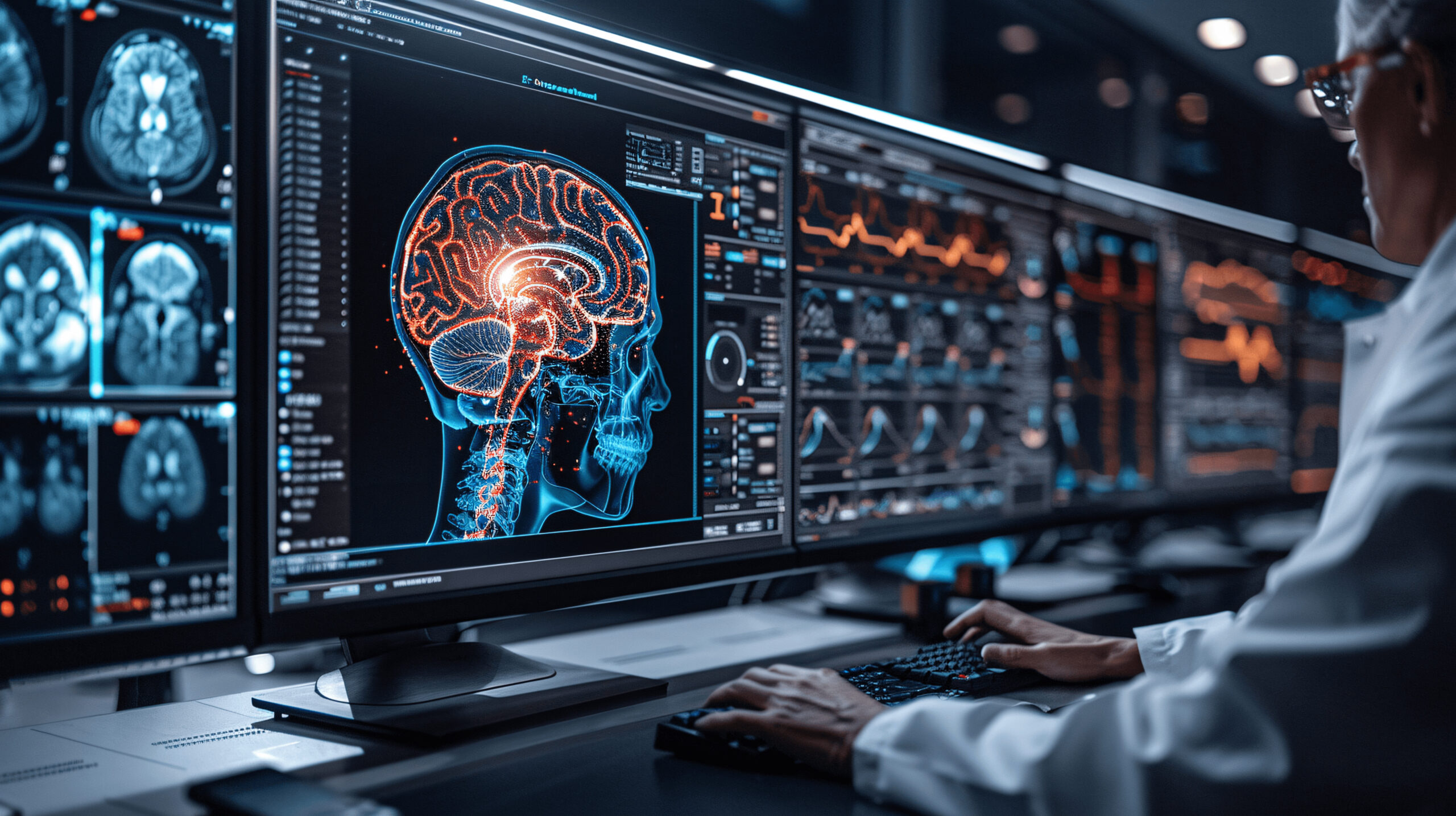
Penn researchers have received NIH/NIBIB funding to develop robust and interpretable multi-modal AI models that integrate genomics, imaging, and electronic health data to advance cancer and Alzheimer’s disease research.

A new method helps prevent “preference collapse” in AI training, offering a fairer, more balanced approach to aligning large language models.

Dr. Hongzhe Li’s team developed RCANE, an AI tool that predicts cancer copy-number aberrations from RNA-seq data, offering a faster, lower-cost alternative to DNA sequencing.

Penn researchers have developed an innovative approach for detecting AI-generated text that remains accurate even after human edits.

Dr. Qi Long and collaborators have received NIH/NIBIB funding to advance neurosymbolic AI for smarter, more trustworthy healthcare.

A new study in The Lancet Infectious Diseases shows that COVID-19 reinfection in children significantly increases the risk of long COVID and other serious health complications.

A new study by Dr. Hongzhe Li and AMCS PhD student Haoshu Xu introduces a machine learning framework that enables large-scale analysis of single-cell data, offering new insights into how gene co-expression networks shift with age.

Penn researchers developed a highly accurate model to predict who is most at risk of overdose from stimulants such as cocaine and methamphetamine—offering a promising tool to guide early intervention and prevention efforts.

Dr. Anne Marie McCarthy has co-authored a new article examining how body mass index (BMI) and breast density interact to influence breast cancer risk among Black and White women.

Laura Ellen Ashcraft, PhD, MSW, introduces GUIDE—a new tool that turns complex implementation science theory into practical steps for early-career researchers.

LauraEllen Ashcraft and collaborators outline a seven-step framework in BMJ Open Quality to strengthen evaluation planning and interdisciplinary collaboration.

Dr. Mingyao Li co-authored a study demonstrating iSCALE, a method that maps large human tissues at molecular and spatial resolution, uncovering disease features previously invisible.

Jordana Cohen, MD, MSCE, contributed to the 2025 AHA/ACC Hypertension Guideline–the first national update since 2017–introducing major changes in risk assessment, screening, and treatment. Her work was featured in an NPR interview highlighting these advances.

Dr. Samantha Piekos’ study shows how placental biology varies across pregnancy complications, highlighting the power of a systems biology approach to distinguish complex pregnancy syndromes.

Dr. Andrea Schneider’s study finds that vascular risks, particularly diabetes, are linked to slower cognitive recovery after traumatic brain injury.

Dr. Mary Putt and her team contributed to new research exploring how sleep drive impacts seizure severity and identifies a potential way to reduce them.

Ricardo Castillo’s new study identifies critical barriers to mass dog rabies vaccination campaigns and proposes strategies to eliminate dog-mediated human rabies by 2030.

Congratulations to Dr. Adam Naj, honored with the Publication of the Year Award for a major study on PSP genetics published in Nature Communications.

Dr. Danielle Mowery’s new study explores how patients engage with SMS systems after hospital discharge and what those patterns reveal about future care needs.

Sarah Schrauben, MD, MSCE, led a 7-year study showing how urine biomarkers may help noninvasively track kidney disease in diabetic patients.
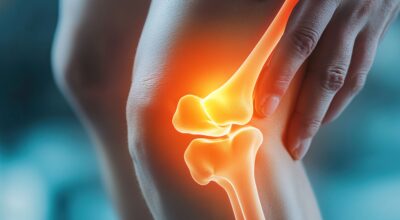
Dr. Alexis Ogdie co-authored a study published in the Annals of the Rheumatic Diseases that explores distinct patient groups and treatment responses in psoriatic arthritis.

A new study in Arthritis Care & Research, co-authored by Dr. Alexis Ogdie, explores patient-defined treatment goals in psoriatic arthritis.

Dr. Alexis Ogdie joins Medscape’s InDiscussion podcast to talk about digital tools for psoriatic disease, including the development of the Psorcast app and the future of technology in rheumatology care.

Congratulations to Dr. Alisa Stephens Shields on her recent JAMA Network Open publication evaluating the impact of COVID-19 self-test kit distribution in underserved communities.

Congratulations to Basam Alasaly, from Penn Medicine’s AI4AI Lab, for presenting at the AMIA 2025 Clinical Informatics Conference.
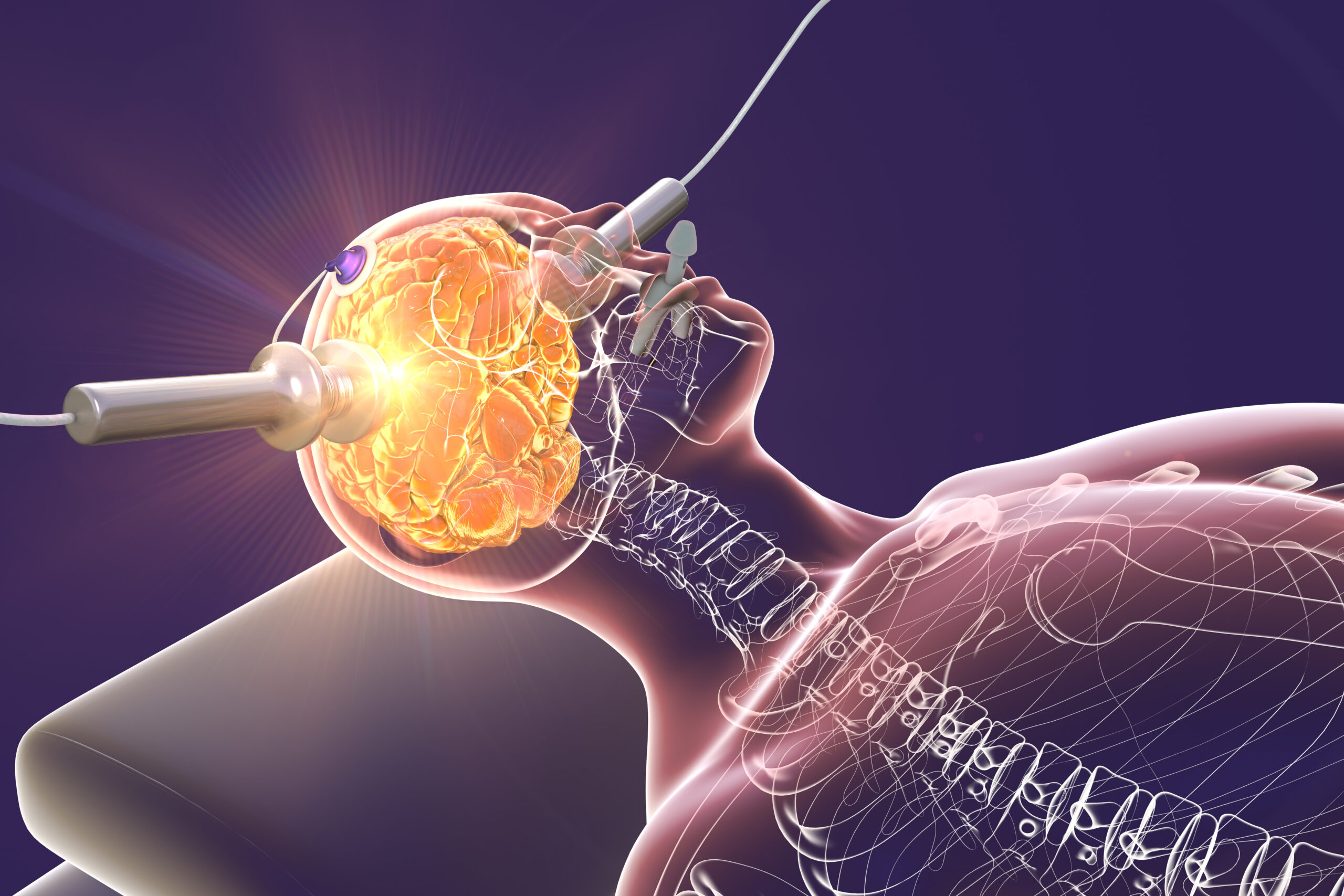
Congratulations to Dr. Mary E. Putt on her recent publication in Physician’s Weekly exploring how brain activity following electroconvulsive therapy (ECT) could hold new clues for improving treatment of severe, treatment-resistant depression.

Congratulations to Dr. Kevin B. Johnson on his publication in The Scientist highlighting the development and global impact of REDCap as a vital tool for clinical research data management.
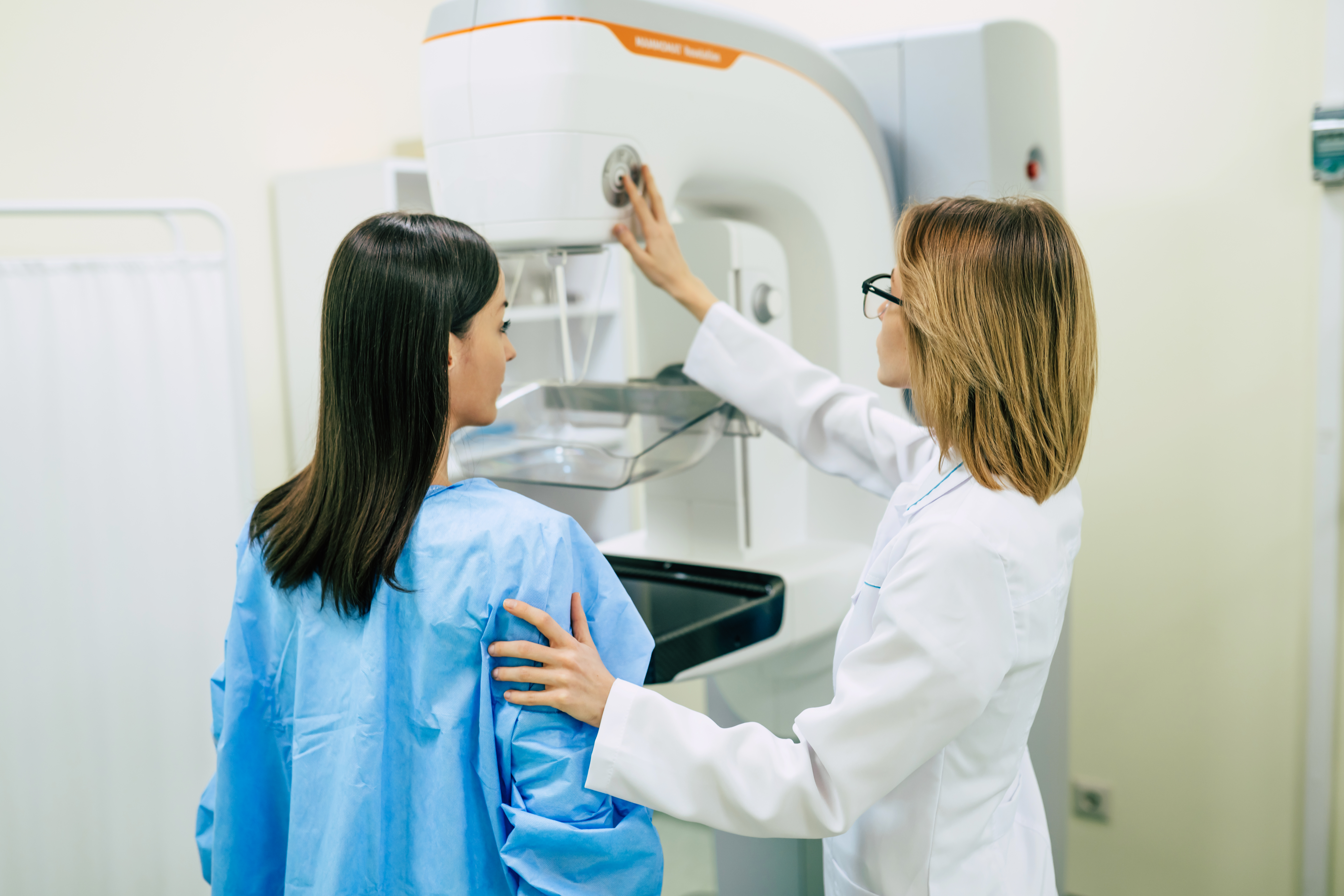
Congratulations to Dr. Anne Marie McCarthy on her recent publication in Radiology, highlighting how advanced imaging techniques can uncover subtle breast tissue patterns linked to cancer risk.

Congratulations to Dr. Rui Xiao on her Nature publication offering new guidelines to support rigorous and reproducible research using zebrafish, a key model in biomedical science.

Read about Dr. Mingyao Li’s recent publication in Nature, which maps early human brain development using spatial transcriptomics. The study reveals that cortical layers and areas are specified earlier than previously thought, offering new insight into how the brain takes shape.

Read about Dr. Sean Hennessy’s recent publication in the American Journal of Epidemiology, which uses a new statistical method to better understand the real-world effects of testosterone therapy. The study offers valuable insights into balancing its potential benefits and risks in clinical care.

Read about Dr. Jordana Cohen’s editorial in Annals of Internal Medicine, where she highlights important considerations around diagnostic testing for primary aldosteronism and its impact on patient care.

A new study led by James Lewis, MD, MSCE, finds that racial and ethnic gaps in IBD care are closely tied to socioeconomic factors—highlighting the need for more equitable access to treatment and specialist care.

Flawed study designs in nutrition research may be leading to misleading advice about healthy eating. DBEI’s Mary E. Putt, ScD, and co-authors warn that many popular dietary trials are too short and poorly structured to give reliable results-putting future nutrition guidelines at risk.

Penn researchers, including Drs. Halpern and Harhay, found that electronic nudges improved end-of-life care discussions in ICUs, increasing hospice discharges and comfort-care orders without shortening hospital stays.

Penn Medicine researchers, including M. Kit Delgado, MD, MS, found that small financial incentives using connected car data significantly increased seatbelt use—even after rewards ended—offering a low-cost, scalable strategy to improve driver safety nationwide.

Kevin B. Johnson, MD, MS, and Penn Medicine researchers conducted a study demonstrating how an AI-powered scribe technology reduces clinician workload, enhances patient interactions, and decreases after-hours documentation, improving efficiency and easing physician burnout.

Rising temperatures pose serious risks for people with type 2 diabetes, increasing the likelihood of heat exhaustion, blood sugar fluctuations, and cardiac issues. Charles Leonard, PharmD, MSCE, FISPE addresses these health threats with Yale Climate Connections.

A new National Academies of Sciences, Engineering, and Medicine (NASEM) report, involving DBEI experts Brian Strom, MD, MPH and John Farrar, MD, PhD, finds that co-prescribing opioids and benzodiazepines to veterans increases the risk of death, highlighting critical implications for veteran health care.

In a new study, Yong Chen, PhD and colleagues at Penn Medicine, used AI and latent transfer learning to analyze long-COVID data, identifying four patient sub-populations with distinct care needs, improving hospital resource allocation and tailoring treatment for diverse patient populations.

Mingyao Li, PhD and her Penn Medicine colleagues developed an AI-powered tool called MISO (Multi-modal Spatial Omics) that can detect cell-level characteristics of cancer by looking at data from extremely small pieces of tissue—some as small as the width of five human hairs.

In Annals of Internal Medicine, Nicholas Seewald, PhD, introduces a framework for target trial emulation, enabling researchers to evaluate health policies with the rigor of clinical trials in nonexperimental studies.

Michael Harhay, PhD, MPH, co-authors “Bayesian Statistics for Clinical Research” in The Lancet, comparing Bayesian and frequentist methods and highlighting the growing accessibility and impact of Bayesian analysis in medical research.

Dr. Mingyao Li’s article in Nature Methods discusses how artificial intelligence is revolutionizing spatial omics, enhancing integration of diverse data and accelerating biological discoveries for improved health outcomes in biomedical research.

Excess weight gain during pregnancy increases long-term death risk from heart disease and diabetes, a Penn Medicine study finds, highlighting the need for better prenatal weight management and preventive care.

Pregnancy complications like preterm birth and high blood pressure increase long-term death risk, a Penn Medicine study finds, highlighting the need for preventive care decades after childbirth.

Patients come to a hospital nearly 36 million times each year in the US, and antibiotics are often part of the picture: One large study showed that clinicians prescribed them […]

In 1991, the National Academies of Sciences, Engineering and Medicine declared that computer-based patient records were an essential technology for health care. The new records would not only support patient […]
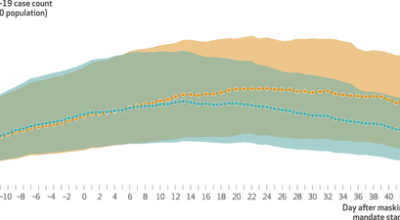
Masking policies during Covid-19 have inspired plenty of political debate, but scientific evidence about the policies’ effects has been very limited. This isn’t surprising, given that it is not practical […]

At the start of the pandemic, professionals working in health systems across the US realized that if a sizable portion of the many people infected with SARS-CoV-2 went to hospitals, […]
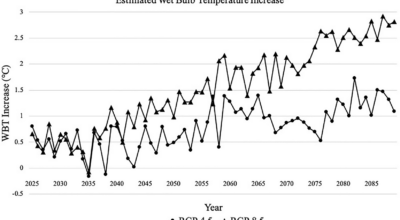
In addition to making events such as catastrophic flooding more frequent, climate change will negatively affect human health in many other ways. Prior research has demonstrated, for instance, that high […]

“Pregnant women CAN drink coffee – it could even slash risk of disease for mum and baby,” proclaimed a headline in the English paper The Sun about a recent study […]

Low to moderate caffeine intake during pregnancy may lower gestational diabetes risk without increasing risks for preeclampsia or hypertension, a Penn Medicine study finds, offering reassurance to pregnant coffee drinkers.

Many human diseases start out with single cells, which establish the problem by spreading out. Spatial transcriptomics, a groundbreaking method, allows scientists to take advantage of that activity, measuring all […]
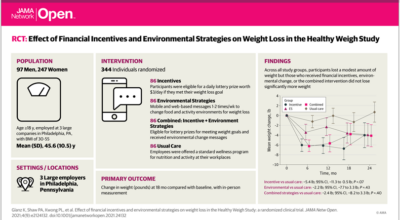
Given rising rates of obesity in the U.S. and the many associated health problems, researchers have tested various strategies for weight loss. Both financial incentives and environmental changes — such […]
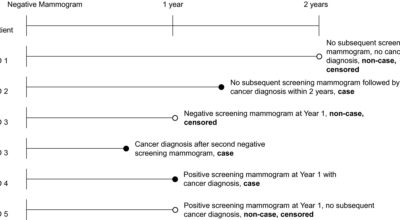
Although mammography reduces breast cancer mortality by 15 to 20 percent, the diagnosis in many cases — approximately 15 percent of all breast cancers — occurs after a patient has […]
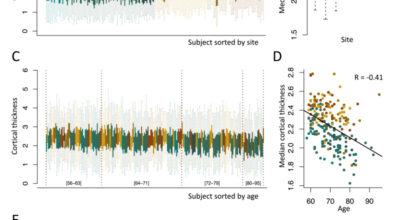
With the proliferation of multi-site neuroimaging studies, there is a greater need for handling non-biological variance introduced by differences in MRI scanners and acquisition protocols. Such unwanted sources of variation, […]